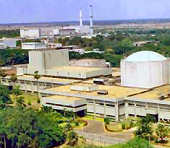 The Bureau of Industry and Security (“BIS”) just released the decision of an Administrative Law Judge recommending a 15-year denial of export privileges to Megatech Engineering, a Mumbai-based distributor of MTS Systems products, and three of its employees. At issue were unlicensed exports of two MTS Systems products to the Indira Gandhi Centre for Atomic Research {“IGCAR”), a company on BIS’s Entity List. Based on the ALJ’s recommendation, Megatech and the named employees have been added to the Denied Persons List.
The Bureau of Industry and Security (“BIS”) just released the decision of an Administrative Law Judge recommending a 15-year denial of export privileges to Megatech Engineering, a Mumbai-based distributor of MTS Systems products, and three of its employees. At issue were unlicensed exports of two MTS Systems products to the Indira Gandhi Centre for Atomic Research {“IGCAR”), a company on BIS’s Entity List. Based on the ALJ’s recommendation, Megatech and the named employees have been added to the Denied Persons List.
Megatech and the individual respondents argued before the ALJ that they were duped by IGCAR which set up front companies and then diverted the exported products from those companies. The ALJ rejected this argument on two grounds.
First, the ALJ noted that the orders that were allegedly destined to the front companies were negotiated by Megatech with an individual that Megatech knew to be an employee of IGCAR. This wasn’t a red flag as much as it was a smoking gun.
Second, the ALJ noted that Megatech departed from its routine procedures with respect to the sales that were diverted to the IGCAR. Normally, MTS Sytems employees would travel to India for installation and final acceptance of products sold by Megatech to its customers in India. For the sales at issue, however, the Indian customer traveled to the United States for pre-shipment inspection, and MTS Systems trained a Megatech engineer to install the equipment and handle final acceptance in its stead. This change guaranteed that MTS Systems would not travel to India to discover that the front companies were not the final end user of the products.
Of course, the change in procedures should have been a red flag not only to Megatech but also to MTS Systems. So, not surprisingly, MTS Systems agreed in March 2006 to a $36,000 civil penalty. The charging documents against MTS Systems noted that an employee working on the exports at issue sent an email stating that “all kinds of flags are being raised here.” Those “flags” weren’t specified, but chief among them had to be the change in routine installation and acceptance procedures.

 Posted by
Posted by  Category:
Category: 

 The Bureau of Industry and Security (“BIS”) recently
The Bureau of Industry and Security (“BIS”) recently 
 President Bush
President Bush  I now have a copy of the criminal complaint filed against Qing Li and it answers a number of questions left open by
I now have a copy of the criminal complaint filed against Qing Li and it answers a number of questions left open by 

